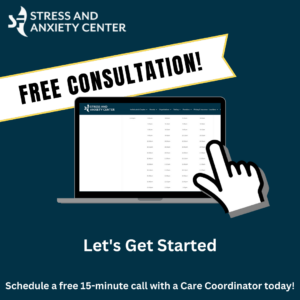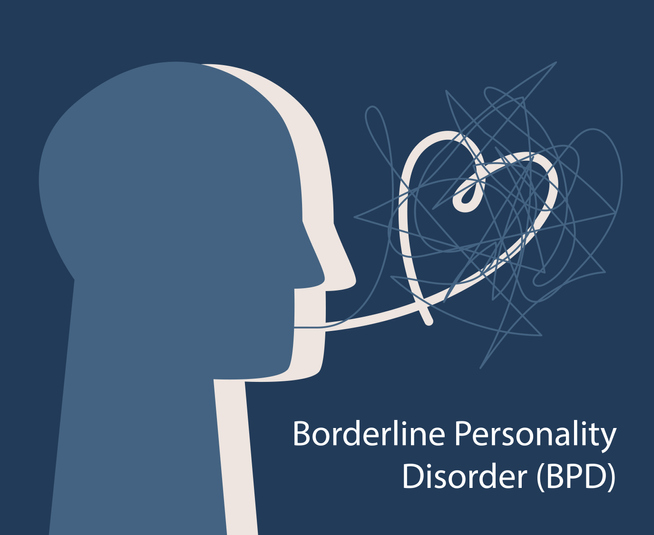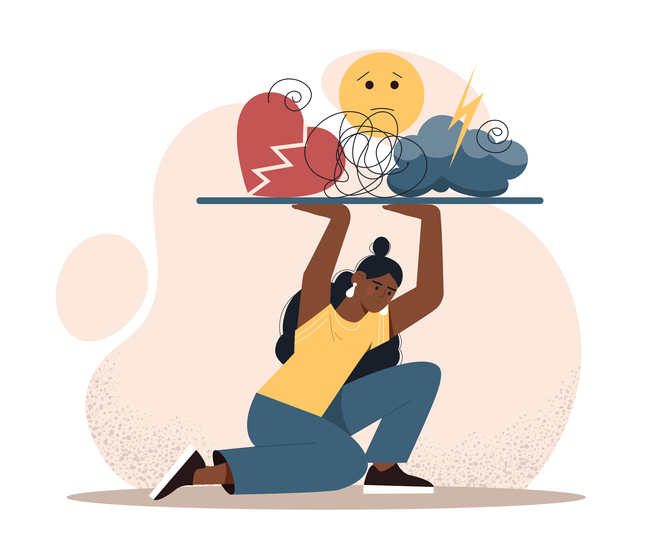Although everyone experiences anxiety at times, some people suffer from more debilitating or heightened forms that can impact their lives on a daily basis. In turn, this can require more understanding and compassion from their significant other. The truth is, dating someone with anxiety can present additional challenges, stresses, and strains to a relationship. For example, when cohabitating, an anxious partner’s difficulty sleeping can negatively impact the sleep quality of both partners. It may also be necessary to adjust to an anxious partner’s difficulty concentrating, nervousness, or restlessness.
While someone with anxiety might need extra patience, empathy, and support from their partner, that doesn’t mean the relationship is doomed; it just requires a lot more communication, which is crucial as a couple anyway.
If you’re dating someone with anxiety or an anxiety disorder, but don’t know exactly how to help them, don’t worry. Here are some great tips on dating someone with anxiety, from ways to support your partner to an understanding of how anxiety can affect your relationship.
How to Support Your Partner With Anxiety
Ask them what they need.
Being in a relationship with someone who suffers from anxiety requires more communication on your part. Whenever a partner’s anxiety level is high, it’s important to be mindful of what they may need and ask what they require at the moment. For example, if they want to be held or if touch feels too overstimulating at the moment, you can just ask them what they need.
However, if they cannot articulate what they need in the moment, try a few low-key approaches such as playing some soft music; playing with pets; or focusing on any calming, pleasant physical sensation they need. Use a meditation app with them and offer to meditate with them for a few minutes or do something artistic and creative together. Games that require a lot of concentration and attention can also be helpful since they divert attention from anxiety. Puzzles or simple video games like Tetris or solitaire can be good at distracting them.
Don’t tell them to calm down or relax.
Even though you might think telling your partner to “relax” is helpful, you might actually be adding to their anxiety. When your partner is suffering from high anxiety, it is most likely that they are already fighting within themselves about how to deal with it, and other people saying this can sound more like a directive than comforting.
Consider calming activities like meditation or a bath instead. Although it may be hard not to tell your partner what to do, trust that when they need you, they’ll tell you. Don’t take it personally if they need some quiet time or some alone time. Respecting them will improve your relationship.
Learn more about their type of anxiety.
In order to be able to help your partner as effectively as possible, you should learn as much as you can about their type of anxiety. This can include generalized anxiety disorder (GAD), social anxiety, separation anxiety, and/or panic attacks. While you may not be able to know exactly how your partner feels, making an effort to learn will benefit both of you.
In order to do this, you can read articles or books on the topic, follow social media accounts, or ask your partner directly what living with anxiety is like for them. As you become more familiar with their condition, you will be able to support them a lot better.
Don’t dismiss their emotions.
You may not fully comprehend what your partner is going through when it comes to anxiety, but that doesn’t mean their feelings are invalid. Whenever you dismiss someone by saying, “You’re overreacting” or “It’s not a big deal,” you can be gaslighting them, making them believe what they’re experiencing isn’t real.
Nevertheless, you shouldn’t let them run wild with their emotions, as this may cause them to spiral out of control. You do, however, want to create a safe space so your partner can navigate their anxiety-which can be difficult if you ignore or dismiss it. Studies show that we seek partners who see us the way we see ourselves in relationships and that this helps the relationship succeed. In a relationship, we want to feel comfortable to be ourselves instead of pretending to be someone we are not.
Be aware of the subtle signs of anxiety, too.
You might be able to spot some of the most common anxiety signs (for example, excessive worrying, restlessness, difficulty falling asleep and staying asleep) easier, but it’s also important to know about less common ones, so you don’t end up supporting behaviors that hurt your partner the most. For instance, perfectionism is often a sign of an anxiety disorder. This may be when our partner can never relax, never stops trying, or needs constant feedback that things are right. They might be feeling more anxiety than they let on. Those with anxiety might seek frequent assurance that they are doing things’ right’. They might be concealing anxiety if they never seem to get enough reassurance or validation.
How Anxiety Affects Relationships
They might have set ways of doing things.
If your partner has anxiety, they may have certain ways of approaching tasks that feel familiar and safe to them. Perfectionism, rigidity, and the desire to control things that do not need to be controlled are some traits they may exhibit. It’s important to understand that they’re usually harder on themselves than they are on anyone else.
One of the ways you can help is by setting boundaries about their need to control things. Discuss their feelings with them, so they feel understood, but also let them know how it affects you. For instance, if you and your partner disagree about how to clean the house because their standards are much stricter than yours, focus on a “good enough” standard and let them know that anything beyond that is on them. Additionally, if you don’t get enough relaxation time, carve out some for yourself that is non-negotiable.
They may have fears about the relationship.
For example, someone may worry about whether their partner will leave them or whether they are truly loved and cared for by them. In many cases, these concerns are unfounded and contradictory to objective reality.
To help cope with this fear, your partner may choose to become extra close, so much so that you may feel smothered. Ironically, this may lead you to create some separation or breathing room, which only confirms the anxious partner’s fears of abandonment. By understanding this, you can navigate the situation with clarity and have an honest discussion.
How to Set Boundaries
While you may love your partner, it’s completely natural to need to set boundaries with them on certain behaviors; what might be considered a healthy coping mechanism for them might impact you in a negative way. Talk with your partner about the specific behaviors that bother you, listen to their perspective, and encourage them to talk about their experience.
Once you find common ground with your loved one, encourage them to seek help from a therapist and continue to set boundaries when their behavior becomes an issue. Be mindful that setting boundaries doesn’t mean you should insult, dismiss, or criticize your partner. The best thing to do is empathize with them and let them know that there might be ways to improve their situation. Don’t take full responsibility for handling their anxiety yourself; don’t put more effort into it than they’re willing to, or you’ll burn yourself out.
At the end of the day, being in a relationship with someone who has anxiety can be a really nurturing and healthy experience. By being supportive, thoughtful, and empathetic about your partner’s anxiety, you’ll be able to build a foundation that will work for the both of you. If you are experiencing anxiety or dating someone who does and need help coping, contact us today for a free consultation to discuss how we can best support your needs.













